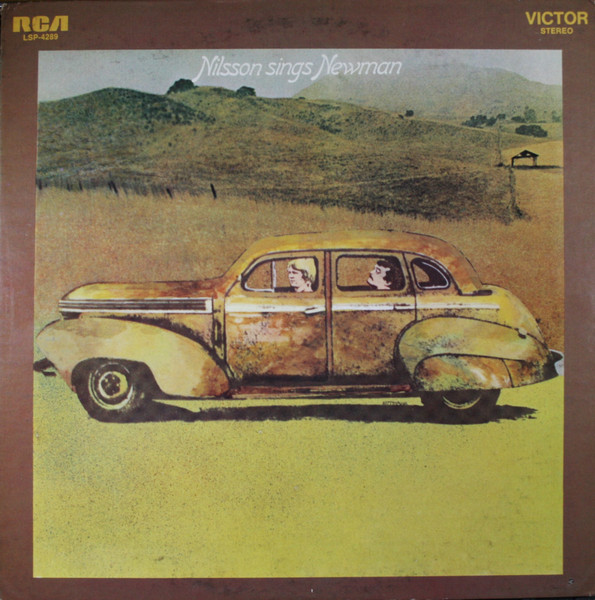 Harry Nilsson understood what it meant to be a struggling songwriter trying to simultaneously make his name as a singer, which is just one reason why he felt a kinship with Randy Newman. Having already covered one Newman tune on his last album, Harry decided to showcase the songwriter by singing along while said author played the piano. Hence, Nilsson Sings Newman.
Harry Nilsson understood what it meant to be a struggling songwriter trying to simultaneously make his name as a singer, which is just one reason why he felt a kinship with Randy Newman. Having already covered one Newman tune on his last album, Harry decided to showcase the songwriter by singing along while said author played the piano. Hence, Nilsson Sings Newman.Don’t be fooled by the tremolo guitar and tambourine for the first 45 seconds of “Vine St.”; that’s merely an in-joke to set up the song proper. This is a piano-and-vocal album, and when we say vocals, we mean it; Harry painstakingly overdubbed himself wherever he saw fit, as he does here for an almost Beach Boys chorale. “Love Story (You And Me)” is quiet and simple, though those trademark Newman ragtime chords are on every chorus. Considering the time, “Yellow Man” might have been considered an anti-war statement, but now it just sounds crass, and it’s easy to be distracted by Harry’s spoken voice between some of the verses. “Caroline” is a straight love song written expressly for the project, with just the slightest hint of vibraphone in the mix. A prairie wind is the sole accompaniment for most of “Cowboy”, and just when it seems about to float away, the piano melody changes to “Midnight Cowboy Theme” by John Barry. Clever.
“The Beehive State” is odd—a verse from a chairman, a verse from a delegate from Kansas, another verse from the chairman, and a verse from a delegate from title-monikered Utah. And that’s it; maybe he didn’t want to write about the other 48? “I’ll Be Home” is more direct in its sneakiness, going from devotion to threatening in two verses. The gospel exhortation between them seems mostly like another in-joke. “Living Without You” is even more straightforward, and almost aches for a bigger arrangement. We can hear him ask for more echo in “Dayton Ohio, 1903” right before the quote from “Moonlight Serenade”, and fake a trumpet at the end. The small-town homespun theme concludes with “So Long, Dad”, which also includes him arguing with himself over how many voices should be in the mix.
Considering that Randy Newman has one of those voices known more for its character than any pleasing timber, Nilsson’s smoother tone does these songs grand favors. Willfully eccentric in its simplicity, Nilsson Sings Newman didn’t do much for either artist at the time, but persistence would pay off in both cases. (As the cult of Harry escalated in the 21st century, the album was given an expansion adding four alternate takes, plus the positively gorgeous “Snow”, criminally left off the original 25-minute album for “lack of room”.)
Nilsson Nilsson Sings Newman (1970)—3
2000 30th Anniversary Deluxe Edition: same as 1970, plus 5 extra tracks
No comments:
Post a Comment